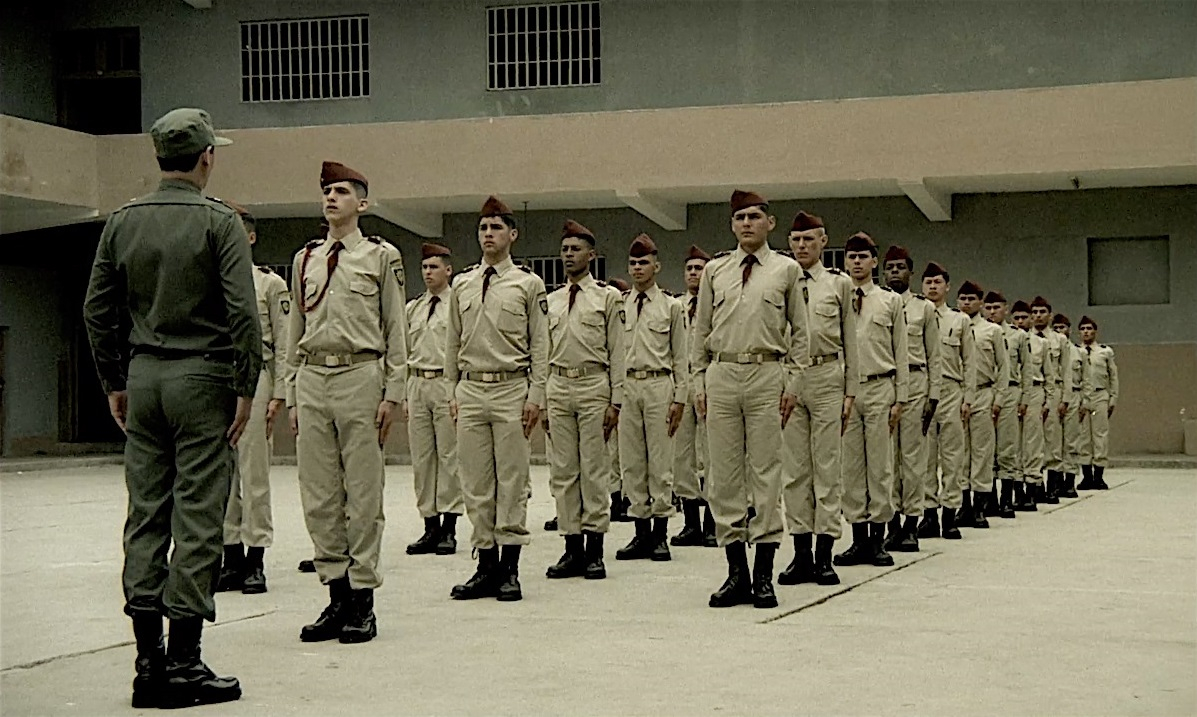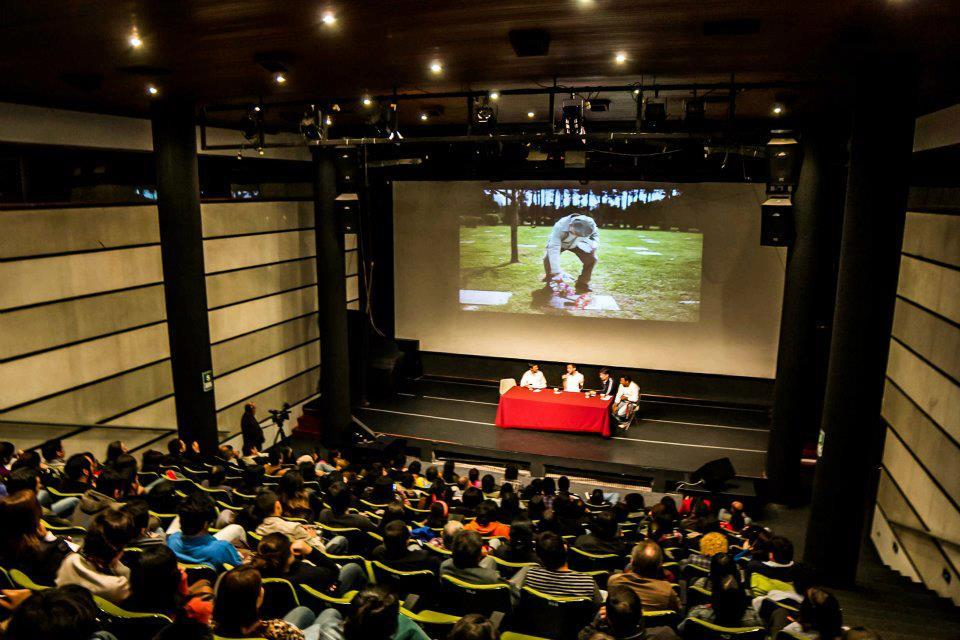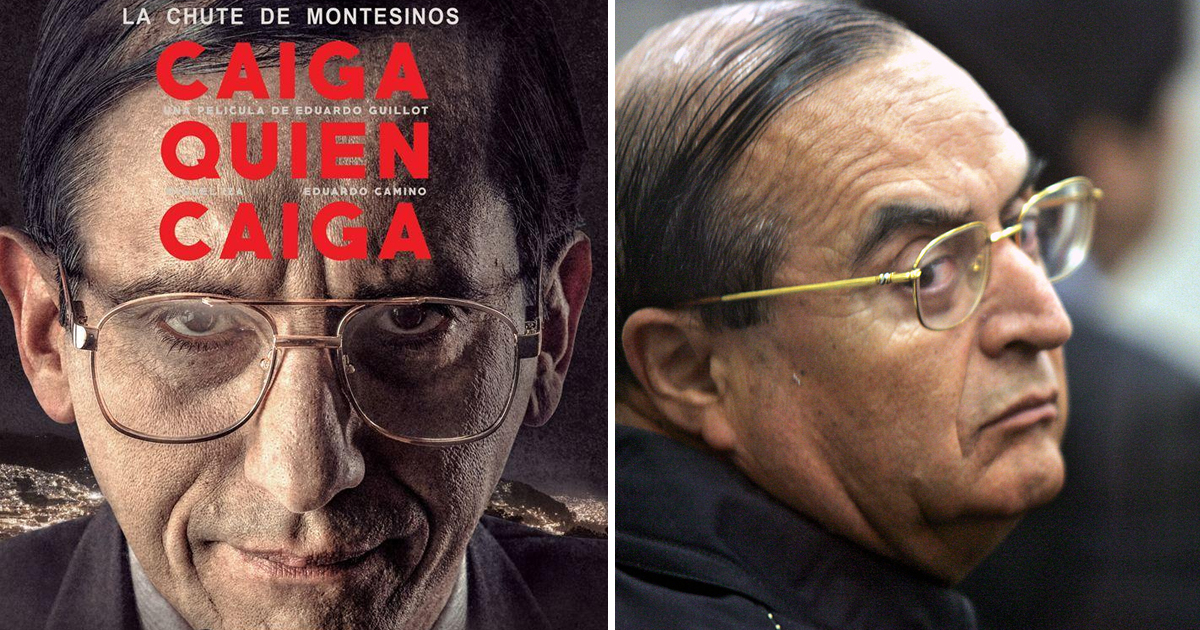Miguel Iza (56 years old) is a renowned Peruvian actor who has exhibited his talent in emblematic films of national cinematography, such as 'The City and the Dogs (1985)', 'Courage (1999)', 'Django, the Other Face (2022)' and 'Whoever falls falls (2018)'. In the latter he took on the challenge of playing Vladimiro Montesinos.
He spoke with this newspaper to share his perspective on the reality of Peruvian cinema, which faces insufficient financing from the State, which makes its international projection difficult. He also recalled his career as an actor, including the large amount of praise he received for his portrayal of the character. Arrospide in 'The City and the Dogs' and explained why new acting talents do not appear on television.
YOU CAN SEE: Miguel Iza: the man who talked about theater
—What did you think of the 2024 Oscars?
—I don't follow the Oscar much or American cinema in general because I have very little time to watch movies. The last one I liked? Oh, I saw 'Belfast', which Kenneth Branagh directed, and 'Muertos de laughter' here, in Peru.
—Since you touch on Peru, do you think that national cinema has experienced upward growth over the years or has it stagnated?
—Talk about stagnation, no, because things have continued to be done. The appearance of Tondero has marked a milestone because it has generated a market for light films. So talking about growth would occur in some sense, because now they access markets that were not accessed before, but we still have the same problem, that the State's contribution is minimal. Until there is a real contribution, which has to do with production monitoring, as is done in almost all markets in the world, it will not improve. There is no country in the world in which a film industry is sustained if there is no presence of the State.
—And with the 'Tudela law'?
—Now with what they are doing in Congress, that they want to change the law, I am not very informed about it, except for my friends who always tell me, but let's say that it is going to be very difficult for cinema to have sustained growth if it is that there is no real interest on the part of the State.
—Do you have any specific proposal to promote the growth of Peruvian cinema?
-No no no. I have many friends who make films and I support them every time they ask me to. What's more, lately I've made a lot of films with very young people. The great thing about young people is that they have a drive of their own. They are natives of the absence of the State; Therefore, they can understand very well that, since the State does not function, they have to deal with it on their own. I even tell you something…
—I hear you…
—Hollywood wouldn't be Hollywood if the State didn't have interference in that. Here they have taught us that culture does not have to receive money. And every time someone orders, they accuse them of being 'comed'. But it's ignorance, right? Peru's problem is education. Since nothing is taught in schools, it is very difficult for people to be informed. People believe that being informed means watching the news, or googling, or going online.
—Do you remember if the financial support when you were an actor in the movie 'The City and the Dogs' was better than now?
—In the 60s, 70s, 80s, perhaps there was a certain type of encouragement and support, which curiously coincided with leftist governments, which has to do with culture. The left is always linked to culture. The idea that the citizen must be cultivated. But the right has always viewed everything that is culture with contempt.

YOU CAN SEE: Miguel Iza is preparing a play Who is Othello? inspired by the last years of Alberto Fujimori's government
—Is talent only needed to stand out as an actor in our country?
—There are talented people who can succeed in a market. Here (in Peru) the appearances of talented people who are successful developing in some artistic field are very sporadic. There are very few and almost all of them now dedicate themselves to networks, or blogs, or alternative channels.
—So there are no stars on national television?
—On television you will not see stars because everyone is forced to imitate. That is, the formats that appear, these types of 'I am', which are formats of imitators; or comedy shows, which is the same thing. How is an original person going to emerge if almost all formats are imitations? In other words, originality is not promoted, imitation is promoted.
—What is happening in Peruvian theater? Is it in such bad condition?
—I invite you to investigate in which countries there is a presence of the State in the theater. Brazil, Uruguay, Argentina, Chile, Ecuador, Colombia, Venezuela. All of them have a State presence. That is, the State has a cultural policy, it manages budgets for the development of theater. Among the eight that I know, only Peru does not have a State presence. And they have deceived us and told us that they have no reason to give even though the plays are of quality.

—Have you fulfilled all your dreams?
—Ah, well, in general I have always done everything I wanted. The thing is that since I have never been a public figure, I have never aspired to fame or anything like that, I have always lived doing what I wanted, it is what I liked. I currently have a school, a theater collective (Del Bardo), and that is my dream, it is working. I never aspired to have a lot of money or be famous, so I can tell you that I am living my dreams.
—Since you were little, have you always wanted to be an actor?
—Well yes, my mother always encouraged me a lot in acting. She was a frustrated actress, as she herself said. They always took us to the theater to see what was on and there I met people like Ramón García, Alberto Isola, important theater people when I was a boy. But then I decided to study systems. I worked for a long time as a programmer and at one point I had to decide: either I'll stay as an actor or I'll stay in systems. It killed me because they were both full-time jobs.
YOU CAN SEE: Miguel Iza: “People should become interested in the political life of the country again”
—And why did you choose acting?
—I dedicated myself to being an actor because at that time I had more work in that field than as a programmer. But it was the only reason. If I had had more work as a programmer, I would surely have stayed at it. I started doing theater when I was 15 years old. At 16 I started studying at Ensad, at the National School of Dramatic Art
, and at 17 I started studying systems.
—They remember you a lot for having played Vladimiro Montesinos in the film 'Caiga who falls'.
—Playing Montesinos was a gift. What actor wouldn't want to play Montesinos? But there are things that come to you without waiting and there are things that never come to you because you miss the train or what do I know, there is someone else… that the director likes more and that's it.

—What is Theater on Demand?
—Teatro a la Carta is a cultural restaurant that asked us to do something in its space. It is a super original format that gives us the opportunity to combine two things that people really like: food and entertainment. So, Teatro a la Carte combines food and theater. For me it's perfect.
—What memories do you have of your first film role, in 'The City and the Dogs'?
—I remember that Toño Vega (Peruvian actor) forcibly took me to the casting of 'The City and the Dogs', because I had a theater rehearsal and I didn't want to miss it. So he canceled my rehearsal and took me to the casting, and I passed. He was 16 years old at the time.
YOU CAN SEE: Miguel Iza: It will be a good time for theater when the State intervenes
—Do you remember how much they paid you to act in that movie?
—Oh, yes, I remember, but it's so relative, I won a million and a half intis, I mean, what was the amount in soles? I have no idea, how to compare it now? Plus, it was the time of the MUC dollar, so it's hard to think about what the exchange rate was. What did I spend it on? I financed a tour that we did with my Ensad colleagues.
—Does the success of 'Al Fondo Hay Sitio' lie in mixing social classes and confronting them?
—Yes, people feel identified. Everything that is social difference in this country will immediately create a phenomenon of identification. Who has not been stepped on by another? Who hasn't stepped on another? It's the guachimán syndrome, right? You give the guachimán a little bit of power and the other one already sucks, right? And he already mistreats the other. It's the syndrome. The soap opera format has also been based on social differences for as long as it has existed.
—Miguel, is the political problem that Peru is currently experiencing clearly the fault of the president?
— Wow, to see the country's problems you have to go back to the beginning of the Republic. That is, everything is a consequence of a consequence. We could not talk about a person, we have to talk about the country in general, which was born Chueco, and forcibly became independent because the Peruvian Creoles did not want to get rid of the Spanish crown.
#Miguel #Iza #force #casting #39The #City #Dogs39 #passed
